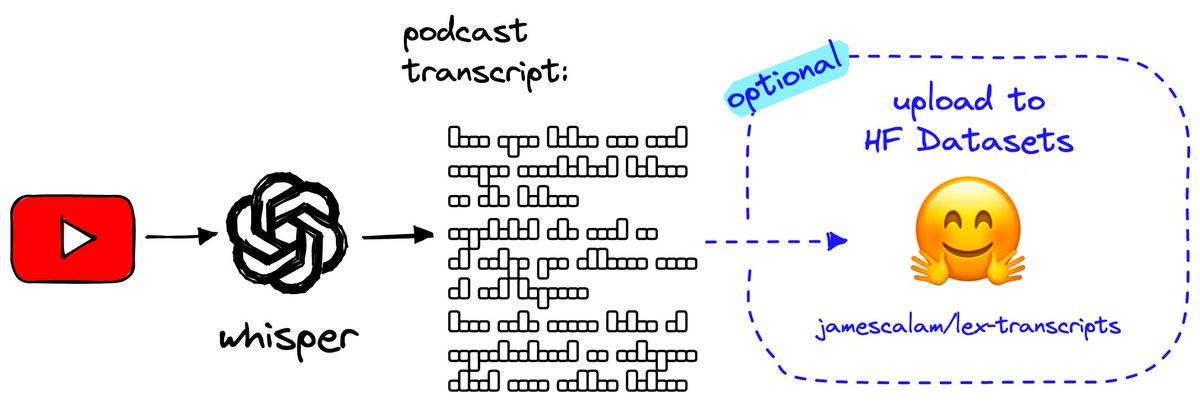#LLMs like GPT-4 are stuck in time — they only understand the world as it exists within their training data...
This causes issues when we need up-to-date info or interaction with specific datasets — here's how we fix that
pinecone.io/learn/langchai…
This causes issues when we need up-to-date info or interaction with specific datasets — here's how we fix that
pinecone.io/learn/langchai…
🔍📚 Retrieval augmentation uses an external knowledge base as a "window" into the world — we explore how to implement this for LLMs using @LangChainAI, reducing hallucinations and keeping info up to date
📖🔧 To give LLMs relevant source knowledge, we create a knowledge base:
- We start with a dataset (e.g., a subset of Wikipedia)
- Split it into chunks
- Generate embeddings (numerical representations) of the "human meaning" behind each chunk
- We start with a dataset (e.g., a subset of Wikipedia)
- Split it into chunks
- Generate embeddings (numerical representations) of the "human meaning" behind each chunk
🌐🗃️ We store these embeddings in the @pinecone vector database, which can scale to billions of records and help us manage this knowledge efficiently — we just add, delete, and update records!
Much easier than retraining a giant LLM for each new doc 😅
Much easier than retraining a giant LLM for each new doc 😅
🤖🔗 After this, we can connect LangChain to our vector DB and add an LLM that can generate responses based on the info retrieved from our knowledge base
📜🔖 But we're still not sure if the generated text is hallucinated or not — unfortunately there's no sure-fire way to solve this (yet...)
However, we can help our users by adding citations to the LLM's responses using @LangChainAI's RetrievalQAWithSourcesChain
However, we can help our users by adding citations to the LLM's responses using @LangChainAI's RetrievalQAWithSourcesChain
• • •
Missing some Tweet in this thread? You can try to
force a refresh

 Read on Twitter
Read on Twitter




